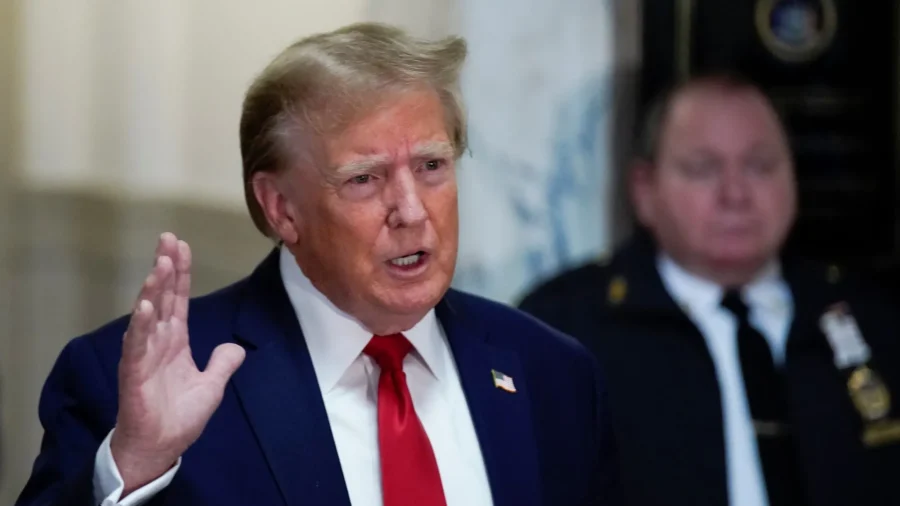Special counsel Jack Smith’s office filed a number of motions over the weekend, objecting to former President Donald Trump’s request for a number of documents via discovery while also opposing his motion to pause court proceedings while an appeal is underway.
“The Court should maintain the March 4 trial date,” one of the briefs reads, arguing that the pretrial motions schedule should continue while the case is appealed.
The defense has appealed U.S. District Court Judge Tanya Chutkan dismissal of a motion to dismiss the case and intends to ask the appeals court to pause the schedule if Judge Chutkan does not.
Should the trial continue in the district court, President Trump’s team has made it known that they intend to investigate alleged election fraud that occurred in the 2020 general elections, arguing that President Trump truly believed there was fraud to be investigated and had sounded the alarm as part of his duty—not as part of a criminal conspiracy as the indictment alleges.
As part of these efforts, defense counsel has requested great amounts of material from the prosecution, arguing that, by law, prosecutors must turn over any potentially exculpatory evidence to the criminal defendant. In recent court filings, the defense submitted email exchanges in arguing that the Department of Justice has refused multiple requests for evidence.
Missing Documents
In a separate filing, the prosecutors argued in a 45-page brief that President Trump’s demand is “unprecedented” and objects on the basis that it would “result in delay” from the current schedule assuming a March 4, 2024, trial date.
“He asks this Court to find that a wide array of entities both inside and outside the Executive Branch are part of the Government’s prosecution team,” they wrote, arguing these documents are not relevant to the case, and “in many cases [do] not appear to exist.”
They argue that prosecutors are required to hand over evidence that could help exonerate a defendant if the material is in their possession but much of what President Trump has requested is not in their possession, and they thus have no obligation to supply it.
The special counsel’s office is arguing that the whole of the executive branch of the federal government cannot be construed to be part of the “prosecution team.” In fact, even the portion of the special counsel’s office working on a separate criminal case against President Trump, in the Southern District of Florida, is wholly separate, they argued.
Thus, documents belonging to the FBI, U.S. Attorney’s office, DOJ, the special counsel’s office at large, the Department of Defense, the Department of Homeland Security, and Congressional committees are not discoverable, they argued.
Some of the materials requested include documents from investigations into foreign interference in U.S. elections, which the defense argued was of real concern to President Trump while he was in office, and showed a pattern that he was proactive in investigating alleged election fraud. Prosecutors argue these reports have no relevance to the case, were not in their possession, and were not a “legitimate defense.”
Another request was related to information about government agents present at the Jan. 6, 2021, rally. Prosecutors dismissed this as a fishing expedition and akin to “the attempt of a bank robber to blame security guards who failed to stop his crime.”
They claimed President Trump’s requests were “overbroad” and consistently failed to show relevance and materiality.
“The Government has taken a broad approach to discovery, providing voluminous, comprehensive, and early productions that exceed its obligations,” the prosecutors argued in defending their approach to discovery.
From The Epoch Times

